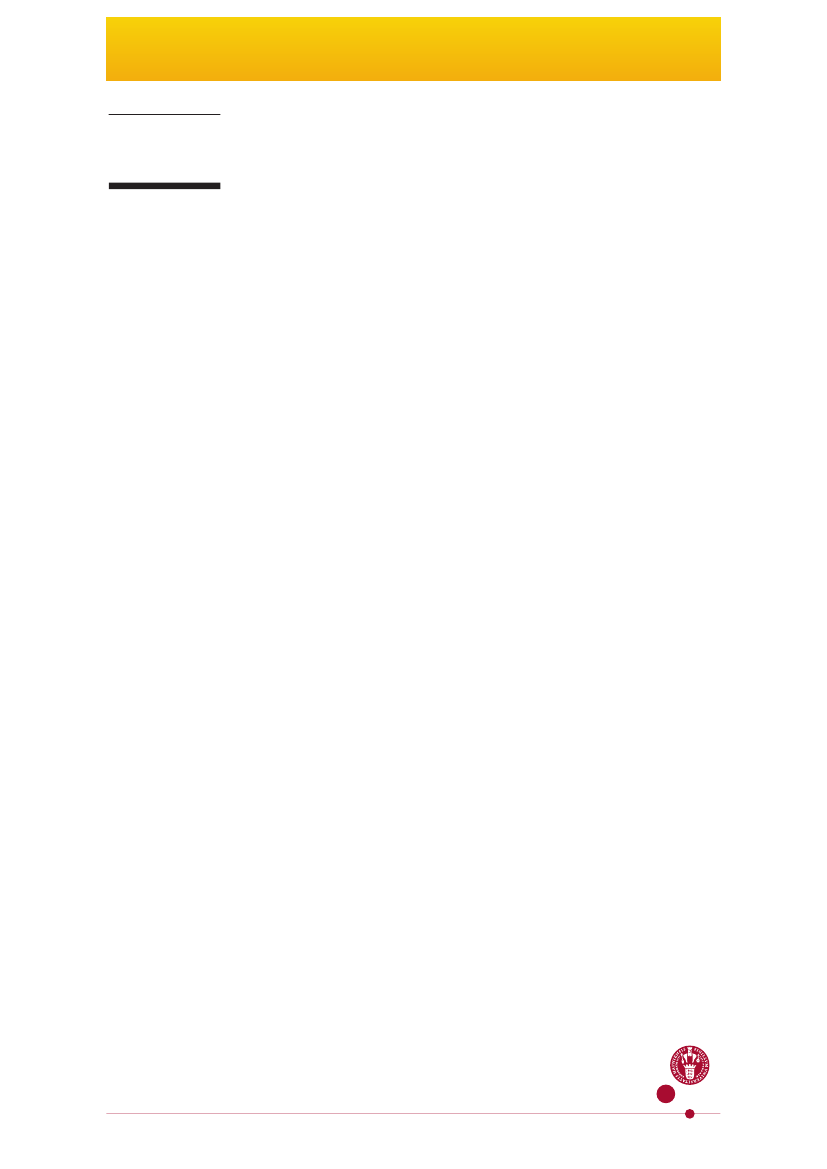Udenrigsudvalget 2010-11 (1. samling)
URU Alm.del Bilag 135
Offentligt
does foreign aid give value for money?
page 1/2
COPENHAGENSUMMERUNIVERSITY
does foreign aidgive value for money?Donors’ development policy is constantly changing. Even though the overall goal of development aid is stillto foster economic development and reduce poverty in the poorest places on the globe, there is a strong trendtowards supporting measurable objectives, outcomes and impacts. The new strategy for Danish developmentpolicy has, for instance, a stated focus on ensuring better results and on maximising value for money.Therefore the fields of economics and statistics are given more prominent roles when evaluating and measur-ing whether foreign aid “works” or “helps”. As this is easier said than done, this course will examine how theimpact of aid is evaluated through the lens of cutting edge research within economics.
What you will learnAfter the course, you will be able to:---Have a clear overview of the main findings within academic research on foreign aid effectiveness;both at the macro level and the micro level.Have a clear understanding of the main challenges facing aid evaluation studies and ability to assessthe value of new research on the topic.Be better to conduct or contribute to evaluation studies including the most updated and relevantquantitative methods.
Course contentEconomically speaking the key objective of foreign aid is to alleviate global poverty by fostering economicgrowth. But what are the magnitudes of global inequities that aid is supposed to help alleviate? This is the firstissue we discuss. Then the course addresses the following questions: What is foreign aid? Who getsforeign aid? Why do some countries receive more foreign aid than others?We then discuss traditional and novel approaches to impact evaluation at the micro (project) level. We examinewhether a given project/programme had the desired effects on individuals, households, firms, and communi-ties and whether those effects are attributable to the project/programme intervention. More specifically wego through both methodological and empirical examples addressing the following questions:
University of Copenhagen
0/0/0/70
publikationer
Placement of logo on publications
does foreign aid give value for money?
page 2/2
1. How did the project affect beneficiaries?2. Were any improvements a direct result of the project, or would they have improved anyway?3. Could the design be modified to improve impact?4. Were the costs justified?Next we turn to the evaluation of aid effectiveness at the aggregate - economy wide - level. We discuss themain reasons why aid should (not) have an aggregate impact on economic development, the methodologyinvoked in assessing the impact of aid on growth as well as its strengths and weaknesses. The course providesa critical discussion of key (recent) contributions to the aid effectiveness literature.To include a political perspective, a small panel discussion is organised at the end of the course with twopolitical representatives.
ParticipantsThe course is for anyone working with the impact of development aid and who are interested in how thestate of knowledge on quantitative analyses of aid effectiveness can contribute. The course is of particularrelevance to individuals working in government aid organizations (domestic or international), aid consultancyand NGO’s who therefore needs to be aquatinted with cutting edge economics research on the topic.Participants are expected to at least hold bachelor’s degree or equivalent.
Course dates5 days, 15th-19th August 2011, 9.00 - 17.00 at the University of Copenhagen, Frederiksberg Campus.
Course directorsCarl-Johan Dalgaard,Professor, Department of Economics, University of Copenhagen.Henrik Hansen,Professor, Institute of Food and Resource Economics, University of Copenhagen.
Other course teachersJohn Rand,Professor, Institute of Food and Resource Economics, University of Copenhagen.Ole Winckler Andersen,Head of Secretariat, Ministry of Foreign Affairs.Christian Friis Bach,Lecturer, Consultant and Affiliated Professor, University of Copenhagen.Two political representatives.
Course feeDKK 18,500/EUR 2,500 (excl. Danish VAT 25%).Fee includes teaching, course materials and all meals during course.For more information and registration: copenhagensummeruniversity.ku.dkUniversity of Copenhagen
0/0/0/70
publikationer
Placement of logo on publications


